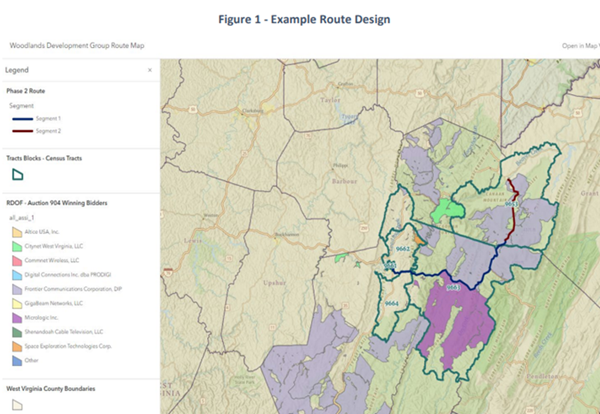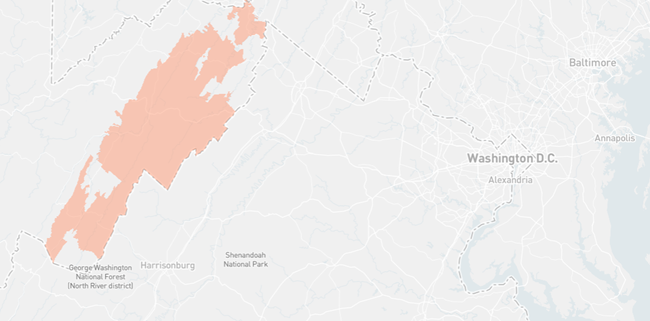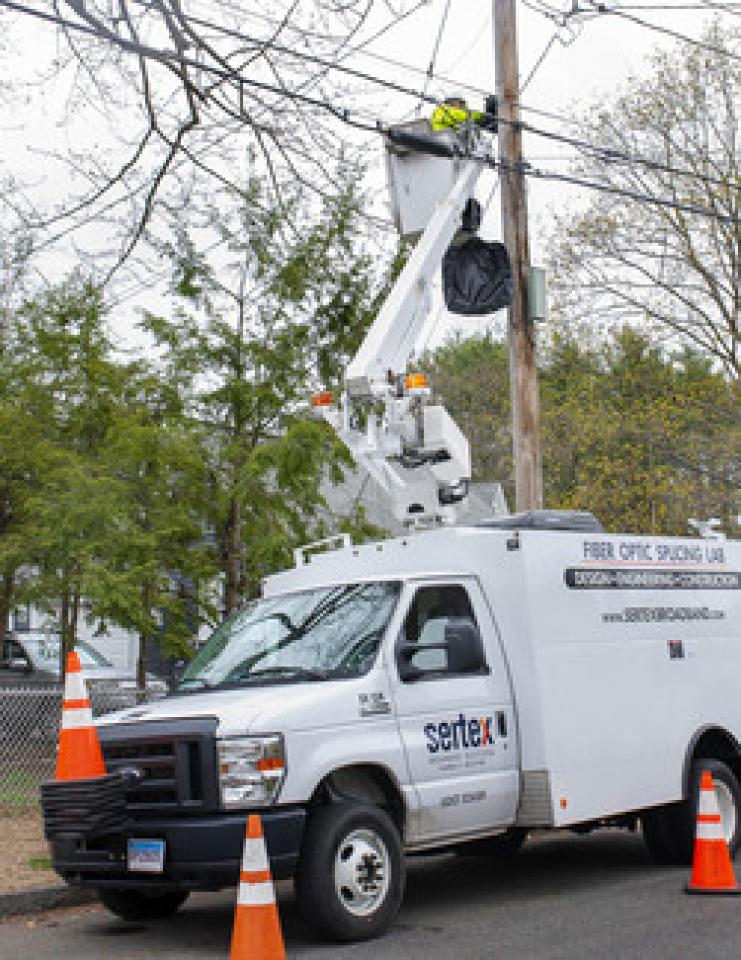
Fast, affordable Internet access for all.


In this latest episode of the podcast, Chris is joined by Derek Barr, Assistant General Manager at Hardy Telecommunications in West Virginia. Together, they delve into the intricate world of nonprofit cooperatives, focusing on the journey of Hardy Telecommunications since its inception in 1953.
Originally established to fill the service gap left by larger providers, Hardy Telecommunications has since expanded its offerings to include broadband services, becoming a lifeline for rural communities with about 6,100 access lines and nearly 5,100 broadband customers.
Derek candidly shares the rollercoaster ride of being a small provider, from wearing multiple hats to navigating the maze of regulatory changes. They explore the ripple effects of federal funding programs like the Broadband Initiatives Program (BIP) and the Rural Digital Opportunity Fund (RDOF) on their expansion efforts.
But it's not just about challenges; Chris and Derek paints a picture of hope through partnerships with counties and emphasizes the ongoing need for support and funding to keep the broadband momentum going in rural areas.
This show is 36 minutes long and can be played on this page or using the podcast app of your choice with this feed.
Transcript below.
We want your feedback and suggestions for the show: please e-mail us or leave a comment below.
Listen to other episodes here or see other podcasts from the Institute for Local Self-Reliance here.
Thanks to Arne Huseby for the music. The song is Warm Duck Shuffle and is licensed under a Creative Commons Attribution (3.0) license.
A new $4 million project funded by the Appalachian Regional Commission (ARC) and the U.S. Economic Development Administration will help bring affordable fiber broadband to long underserved parts of West Virginia.
The project primarily targets the rural counties of Randolph and Tucker, long stuck on the wrong side of the digital divide.
The RFP for the open access middle- and last-mile file project was issued last summer, seeking partners to help maintain the network and manage access leases in partnership with the Woodlands Development Group (WDG), which will own the finished network.
“The Route 33 Broadband Deployment Project will deploy backbone fiber from Elkins along Route 33 through Bowden, north to Harman, up to Canaan Valley, and ending in Davis, establishing last-mile broadband access to 40 businesses, and enabling future last-mile projects to serve at minimum 480 households and 25 additional businesses located within 1,000 ft of the backbone fiber,” the RFP states.

WDG, a 501(c)(3), had already been awarded a $1.7 million grant laying the foundation of the effort courtesy of 2021 COVID relief legislation (courtesy of the American Rescue Plan Act). The remainder of the $4 million project will be funded by the Appalachian Regional Commission and the U.S. Economic Development Administration.
The rocky rural hills of West Virginia are a formidable foe when it comes to building high-speed Internet infrastructure that offers affordable high-quality service.
Nobody knows that better than Hardy Telecommunications (OneNet), a small community-owned cooperative that delivers affordable fiber to frustrated locals deemed too costly and cumbersome to be served by the incumbent telecom giants.
The cooperative serves parts of four counties (Hardy, Pendelton, Grant, and Hampshire). It connected its first fiber customer in 2013, after receiving $31.6 million in federal BTOP funding. Since then, the cooperative tells ILSR they’ve spent $20 million of their own funds to bring fiber to rural corners of the aptly-named Mountain State.
Derek Barr, Assistant General Manager at Hardy Telecommunications, says the cooperative currently delivers broadband service to 5,050 rural subscribers – 4,736 of which are on fiber lines that simply wouldn’t exist without federal funding programs. Hardy Telecommunications also provides 68 customers with fixed wireless access (FWA) broadband service.

“Our focus is fiber, and we're trying to build out fiber as much as we can,” Barr tells ILSR. “But it's very tough in our serving region. It's all mountains and a lot of trees, and a big chunk of our area is either state park or national forest land. It's also very hard to do fixed wireless because even if it might work in the winter, it's not going to work in the summer” when tree leaves block line of sight, he noted.
So the cooperative slowly and consistently expands fiber as it can, often in partnership with Pendleton County. As a result, locals have the option of a variety of double and triple play phone, cable, and fiber options, starting with a symmetrical 100 Mbps (megabit per second) downstream, 50 Mbps upstream fiber and phone bundle for $79 a month.
Lancaster, Pennsylvania has revitalized the city’s long percolating plan for a municipal broadband network, this time via a public-private partnership (PPP) with Shenandoah Telecommunications Company (Shentel). The city’s quest for more affordable, reliable broadband is a quest that’s taken the better part of a decade to finally come to fruition.
Lancaster city officials recently announced that they’d selected Shentel with an eye on ensuring uniform broadband availability to the city of 57,000.
“In 2022, the City issued an RFP for a partner to achieve stated goals, which received five responses, and led to the selection of Shentel,” the city said. “The contract will result in Shentel installing fiber at its sole cost to provide service to 100% of the city’s residents. Shentel plans to commence design and construction immediately upon execution of the final agreement.”
According to Lancaster officials, the city hired CTC Technology & Energy Engineering & Business Consulting to evaluate the city’s needs. The determination to proceed with a PPP with Shental was driven, in part, by the historic broadband grant opportunities being created thanks to the 2021 Infrastructure Investment and Jobs Act (IIJA), and the American Rescue Plan Act, the latter of which provided $39.5 million to the city.
In an economy where inflation seems to be everywhere, Fairlawn, Ohio residents are getting a bit of welcome news.
Subscribers to FairlawnGig – Fairlawn, Ohio’s municipal broadband network – are being upgraded to new service levels as the city-owned network bumps up speeds and slashes prices to make its fiber Internet service faster, and even more affordable.
Earlier this week, FairlawnGig announced that subscribers who had been getting Fairlawn’s basic service tier of symmetrical 300 Megabits per second (Mbps) were being upgraded to symmetrical gig speed service – for the exact same price of $55/month.
FairlawnGig also announced that subscribers who had previously been getting gig speed service will see their bills drop down to $55/month instead of the $75/month they had been paying. Meanwhile, subscribers who were getting 2.5 Gigabits per second (Gbps) for $150/month will now be upgraded to a symmetrical 5 Gbps tier, and see their price drop to $100/month.
“That was always the plan from the very beginning,” the City of Fairlawn’s Public Service Director Ernie Staten told ILSR this week.
We have been striving at all times to bring the greatest speeds and to bring prices down. We have made it where we have done well enough financially to start lowering prices and providing greater speeds.
Local Businesses Threatened to Leave – Unless Better Internet Comes to Town
Fairlawn, a small city of approximately 7,500 Ohioans about 10 miles northeast of Akron, created a telecommunications utility in 2015 to bring city-wide access to high-speed Internet service after years of dealing with subpar broadband offerings from the incumbent providers.
In the summer of 2021, Lakeland city commissioners voted 5-to-1 to strike a private-public partnership (P3) with Summit Broadband, part of a 10 year plan to expand broadband availability within city limits. But officials in this central Florida city of 112,000 have expressed growing consternation that the planned broadband expansion is behind schedule and more selective than expected.
“I think this is the right move for the City of Lakeland as it will accomplish what was my goal: to make it a smart city without the burden of bonding out our debt,” Lakeland Commissioner Bill Read said shortly after the project was announced. “The private sector can do a job much better than any public entity, better than our city.”
A year later and several city leaders don’t seem entirely sure.
Local news outlet LkldNow indicated last month that most Lakeland residents have yet to see service, and that Summit appears to have shifted its deployment priorities away from uniform house-by-house coverage, and toward select businesses and housing development developments.
Lakeland Mayor Bill Mutz said of the revelations:
I am not satisfied with the speed with which Summit is rolling out service to consumers in Lakeland and concerned that they may have de-emphasized that express concurrent desire of the commission. Whereas it has been our goal to provide commercial business with improved Internet service, the consumer emphasis was originally and consistently one of our highest expressed priorities and motivations.
City Officials Question Partners’ Apparent Shift in Strategy
Under the city’s 10 year agreement with Summit, the provider pledged to spend $20 million over the next five years expanding the city’s existing 350-mile dark fiber network. Under the deal, Summit will pay the city $144,000 per year initially, ultimately switching to paying the city 10 percent of gross revenue on Internet services.
For the past four consecutive years, community owned and/or operated broadband infrastructure has proven to be a key ingredient in the makings of some of the fastest Internet Service Providers (ISPs) in the nation.
As was the case last year, PCMag’s recently released Top 10 list of “The Fastest ISPs of 2022” feature operators that are either municipal broadband networks or use city-owned fiber or conduit to deliver service across whole or parts of their footprint (with the exception of this year’s ninth-place finisher). Another way of saying that is: not one of 10 fastest networks in the nation are owned or operated by the major national ISPs, many of whom have embarked on an aggressive lobbying campaign to misinform public officials in particular and the public in general on the viability and successes of municipal broadband and local partnerships.
After ranking the major ISPs in their own slower category, PCMag turns to “talk about real speed.”
For that, you don’t go to the big guys … Higher speeds are found in smaller, localized ISPs.
Need for Speed? Look to Local ISPs and Munis
After PCMag compiled a year’s worth of speed tests to analyze which ISPs offer the fastest download and upload speeds, Sonic – a California-based independent ISP – came out on top this year, having “posted the highest number we have ever seen in our test results. Because the uploads this company offers are, on average, eclipsing download speeds—by a lot.”
Catapulting to the top of this year’s list (from 10th place last year), Sonic is a privately-owned company that uses publicly owned conduit in Brentwood, California.
It’s been one long year since Chris took a bet with Travis over the FCC updating the definition of broadband, and this week we’ll find out who won (not looking good, Chris). In this episode of the Connect This! Show, co-hosts Christopher and Travis Carter (USI Fiber) are joined by regular guests Kim McKinley (UTOPIA Fiber) and Doug Dawson (CCG Consulting) to talk about current events in broadband.
The panel will talk about the FCC definition of broadband, MDUs, other recent news and will continue their conversation about redlining and digital discrimination.
Subscribe to the show using this feed on YouTube Live or here on Facebook Live, or visit ConnectThisShow.com.
Email us broadband@muninetworks.org with feedback and ideas for the show.
Watch here on YouTube Live, here on Facebook live, or below.
Because its downtown buildings were made to resemble Windy City architecture, Fort Dodge was once nicknamed “Little Chicago.” But now, this north-central Iowa city with a population of just under 25,000 is building something the real Chicago, 360 miles east of Fort Dodge, does not have: a municipal fiber-to-the-home (ftth) network.
Having secured up to $36.8 million in loans from a consortium of local banks, the Cedar Rapids-based engineering firm HR Green has been hired by the city to put together a final engineering and design plan for a city-wide fiber network.
The RFP to do the construction work will go out to bid in late spring 2022, with actual network construction slated to begin in the summer of 2022. City officials say the new utility will likely begin offering high-speed Internet service to Fort Dodgers as soon as the summer of 2023, though the network won’t be fully built-out city-wide until 2024.
Unserved, Underserved and Poorly Served
In many rural communities, local governments, cooperatives, public entities, or nonprofit organizations will sometimes build the infrastructure necessary to deliver high-speed Internet service to the unserved and underserved because incumbent providers don’t see enough short-term ROI to justify the expense. But in more densely populated locales, municipal broadband is often pursued because the existing service from private providers simply isn’t up to par. The market has failed rural, suburban, and urban communities - just in different ways.
And that’s why in cities like Fort Dodge, the feasibility study commissioned by the city hits on a familiar refrain found in feasibility studies across the nation:
“Despite being the largest city in the region and key commercial hub, Fort Dodge telecommunications infrastructure is less advanced than in surrounding rural areas and small towns like Lehigh, Dayton, and Badger.”
After working over a year to obtain licenses to deploy fiber across town, by this time next week the central Connecticut town of Plainville, home to approximately 17,500 residents, will begin construction of a municipal fiber network. When finished, the network will connect all town offices, public education facilities, public safety services, and wastewater treatment facilities.
Over a decade after high-speed fiber connections linking the town’s municipal center and a local high school to the statewide Nutmeg Network were first established in Plainville, multiple municipal buildings throughout town still lacked reliable broadband connections, and some had not been connected to the Internet at all.
With locally-based construction firm Sertex set to begin laying fiber for the townwide institutional network (I-Net) next week, which will include “12.5 miles of aerial cabling and three underground spans running beneath major highways,” that’s all about to change for the relatively dense, 10-square-mile community, reports Sertex.
